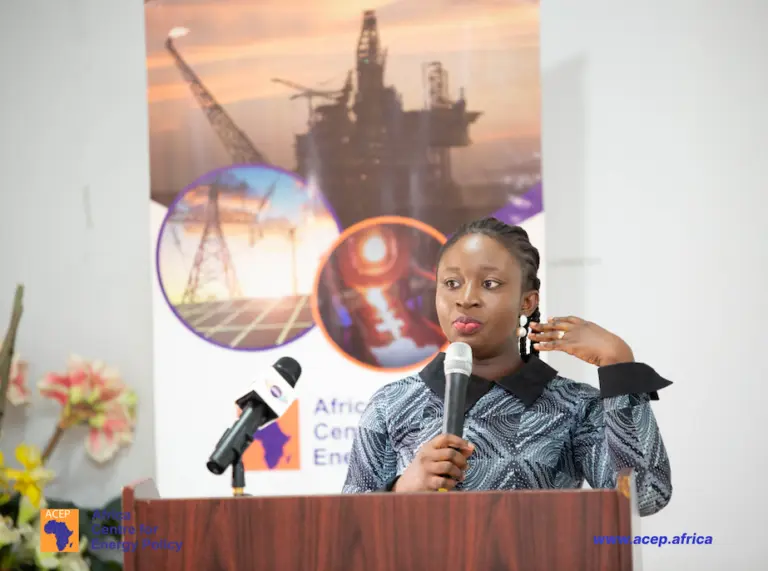

On Thursday, April 14, 2022, the Africa Centre for Energy Policy (ACEP) engaged key stakeholders in Ghana’s mining sector to review its Gender Policy proposition for the sector. ACEP, through this engagement, gathered the inputs of stakeholders to contribute to a framework that can encourage the participation and development of women in the extractive sector.
In her opening remarks, Madam Vera Karikari Bediako, Principal Programmes Officer at the Ministry of Gender and Social Protection, commended ACEP for the step taken which she believes will help to make such an economically important sector more attractive to women. “A gender policy in such a male-dominated sector will help to achieve the inclusion we all want to see”, she added.
Presenting the policy proposition during the engagement was Senior Policy Analyst and Head of Monitoring, Evaluation, and Learning at ACEP, Maybel Acquaye. The proposition as presented encompassed thematic areas including employment and income, decision-making and governance of the mining sector, provision of goods and services, training and capacity development, health and safety, and funding for policy implementation, among others.
While the idea to get more women involved was welcomed, some participants, including James Ata-Era, a Planning Officer at the Asutifi North Municipal Assembly questioned the readiness of women to actively participate in the sector. To wit, women must lead the quest to break the bias against them in the sector, hence, they should be ready to undergo the needed training to qualify them for the opportunities available within the sector.
Participants called for STEM and technical education to be made more attractive to the girl child at the pre-tertiary stage of education. This, coupled with the right training, incentives, and standards are believed to make more women interested in the mining sector and contribute to the sector’s development.
Madam Monalynn Anokye-Bempah, Senior Gender and International Affairs Officer at the Minerals Commission stated in her remarks to close the engagement that the Commission was at the time working on a revision of a national gender policy for the sector and will gladly take the propositions presented into consideration. She emphasized the gradual nature of female empowerment and equality, recognizing the efforts made by civil society to achieve the goal and reminded participants to remain hopeful.
Also present at the engagement were the Ministry of Finance, Ministry of Lands and Natural Resources, Ghana Chamber of Mines, Prestea Huni-Valley Municipal Assembly, Natural Resource Governance Institute, Ghana Bauxite, Center for Public Interest Law, WACAM, Precious Minerals Marketing Company, Ghana Anti-Corruption Coalition, Rocksure International, Oxfam in Ghana, and the Ministry of Energy.
